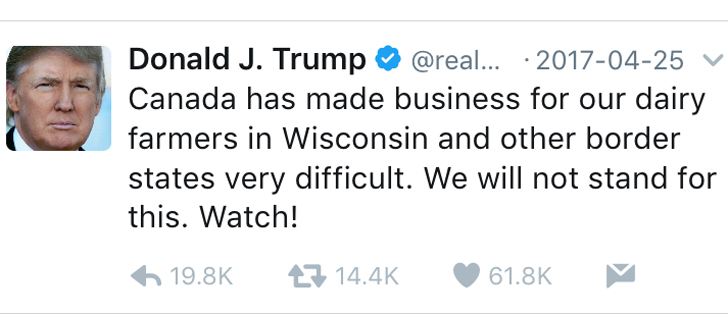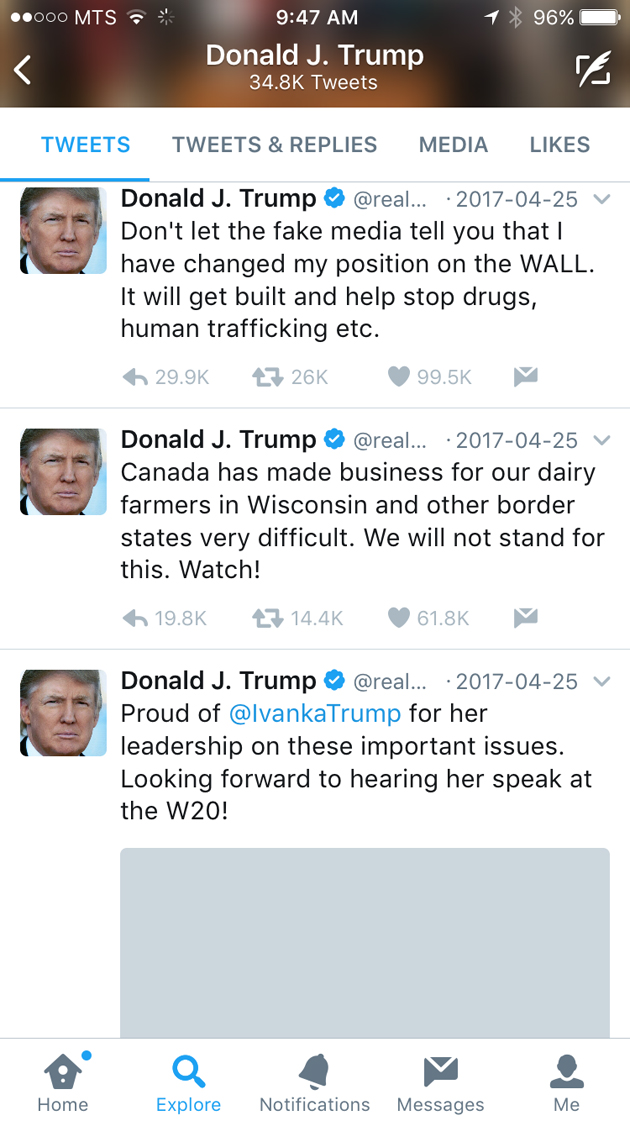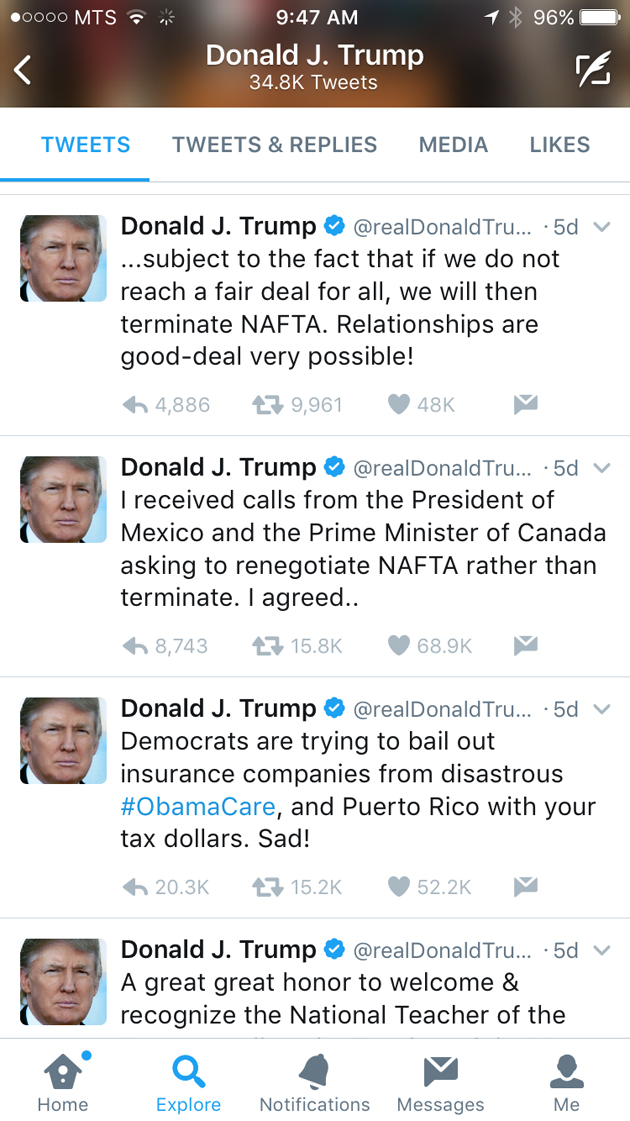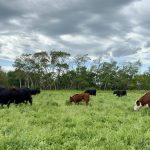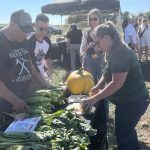U.S. President Donald J Trump, the real one from Twitter, gave everybody in Canada a heart attack last week when he almost announced a USxit from NAFTA. According to a number of reports, it took new U.S. Agriculture Secretary Sonny Perdue running over to the White House with a map highlighting the regions of the country’s farmers that would be hurt by a breaking of NAFTA, and hurried calls from Canadian Prime Minister Justin Trudeau and Mexican President Enrique Pena Nieto, to get him to back away.
Read Also
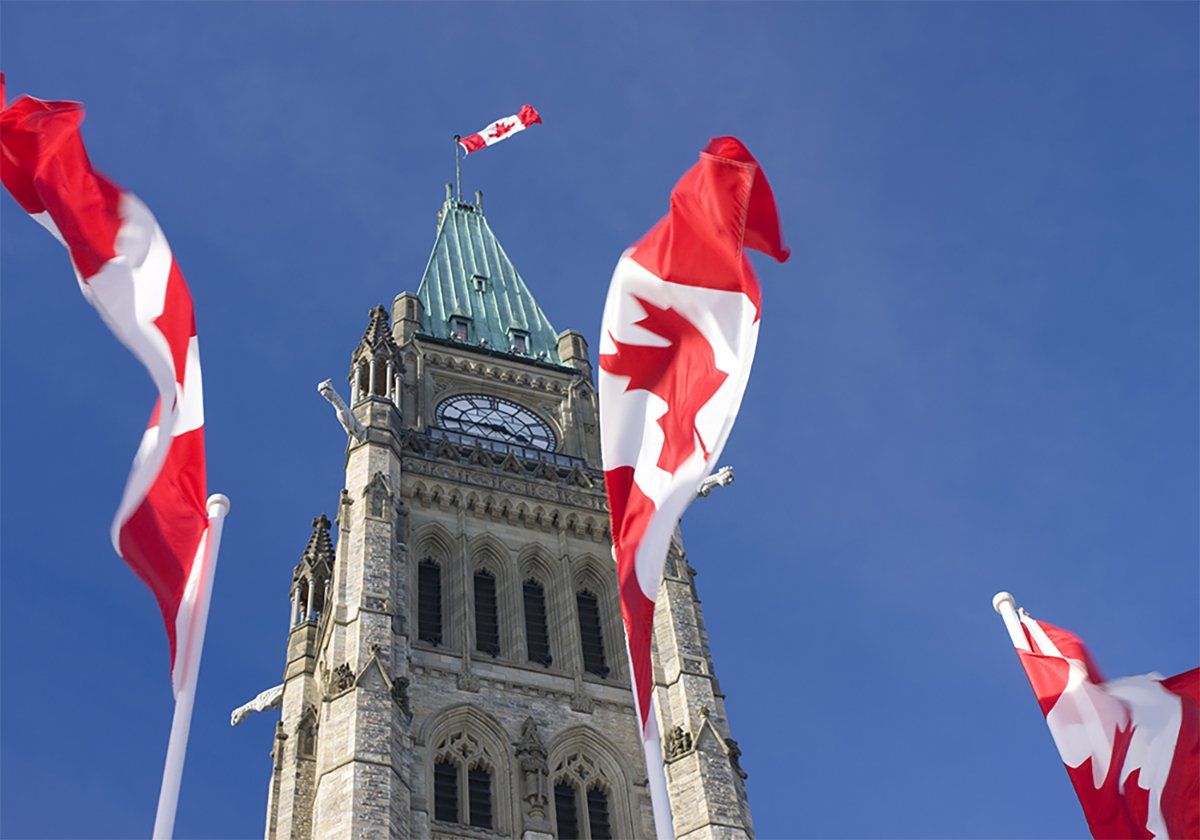
Farm groups are too amiable with the federal government
Farm groups and commodity groups in Canada often strike a conciliatory tone, rather than aggressively criticizing the government.
But this has been an important heads-up for Canadian farmers, who rely upon open access to the U.S. for most crops, livestock and meats. For all the making-nice with Trump that Trudeau has been doing, and for all the hard work of our diplomats in Washington and the federal and provincial ministers visiting the U.S. capital, this sudden threat to NAFTA is a startling wake-up call for those who thought Trump could be managed. It looks like he’s going to continue to be a disruptor and will continue to make bold, aggressive acts when he’s trying to show leadership, and that might leave us caught in the headlights and crosshairs of his attention.
That’s why Canadian farmers and farm leaders can’t leave it to the Prime Minister, our diplomats and provincial agents to save us from a sudden burst of protectionism arising sometime in the next few years. It’s time now for farmers to work diligently to make the voice of open borders and economic integration as loud as that of the protectionists who must now feel emboldened.
If anybody thinks Country of Origin Labeling can’t come back, guess again. That sort of action plays well with certain groups of farmers in certain states, so watch out for the next time Trump travels to a state that contains an organized lobby. We just saw what happened when Trump travelled to Wisconsin and heard from a small group of dairy farmers who had been told by their local milk plant that Canada was the cause of them losing their contracts.
Canadian farmers need to work with American partners, customers and suppliers to counter protectionist sentiments. If Trump is affected by voices he hears during his travels, let some of those voices be ones pushing back against attempts to unravel the free trade that has allowed North America’s farm and food economy to become tightly integrated. Tell your American friends to call their Congressmen, write to Trump, call their governor’s offices to talk about the importance of open borders for American farmers. It looks like he listens to what people are telling him, so work with that.
You can be sure that those opposed to Canada-U.S. trade, who want to get rid of NAFTA, and who drove the cancellation of the Trans Pacific Partnership talks aren’t being quiet with their opinions and demands. Trump isn’t likely to listen to Canadian farmers, but he will probably listen to American farmers who sell to Canada, buy from Canada, and work with Canadians. Try to get them to tell him something good about Canada and trade while there’s still time.
(This is Part 1 of a three-part argument on this subject.)


